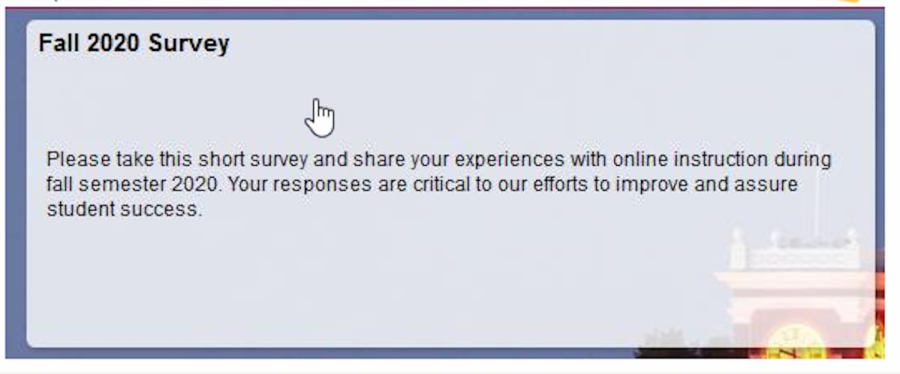WSU analyzes fall survey data to plan for spring semester
More than 4,000 students completed survey; data used to aid students during pandemic
The main goal of the survey was to find out what barriers students may be having with online learning.
January 19, 2021
WSU sent out a survey in late September asking students about their fall experience to better understand how to help students succeed academically amid the COVID-19 pandemic.
The survey was a collaborative effort between the Office of the Provost, Faculty Senate, Institutional Research and other units on campus, said Stephanie Kane, Institutional Research assistant director.
More than 4,000 students completed the survey, which is about a 15 percent response rate, she said.
“We were really hoping to hear back from more students because … we’re worried that maybe there are students who are struggling that we’re not hearing from,” Kane said.
Undergraduate and graduate students across most of the WSU campuses were able to complete the survey through myWSU. Global Campus students were not able to complete the survey because they already had an online academic experience prior to the pandemic, Kane said.
The main goal of the survey was to find out what barriers students may be having with online learning, she said.
“We have an obligation to our students to do whatever it takes to help them be successful,” said Greg Crouch, chemistry professor and former chair of Faculty Senate.
Kane said 48 percent of respondents said they were comfortable with the technology used in online courses. Thirty-eight percent said they somewhat agree with that statement.
Forty-six percent of respondents said they strongly agree they had reliable internet and 37 percent said they somewhat agree, she said.
Ten percent of respondents said they did not have reliable internet. Kane said that percentage is a worrying number.
“We worry about all of our kids,” she said. “It’s not just whether most of them are okay, but we do want to figure out how to help all of our students.”
Kane said the university used a lot of the same questions asked in a similar survey sent out last spring. Some of the questions included asking students whether they had adequate study spaces, whether they had the necessary software to complete their courses, and whether they had access to supplemental equipment like microphones.
Last spring, the university started laptop and hotspot loaner programs for students who do not have reliable internet access, Crouch said.
“We’re trying to figure out what we can do to make the experience as best as possible … for students since we were forced to go remote in spring 2020,” he said.
The survey closed in October so faculty members could adjust their teaching styles for the spring semester, Kane said.
Kane said she is unsure if the university will conduct a similar survey at the end of this semester.










